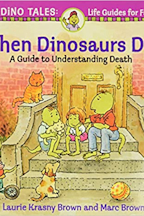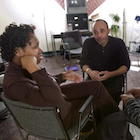Search results
Find the right therapist for you.
Powered by

You will be redirected to a third party site for results, which are provided for informational purposes only. Yahoo does not retain any information submitted via this form, and does not endorse or recommend any particular services or therapists.
- Text HOME to 741741 to reach a trained Crisis Counselor through Crisis Text Line, a global not-for-profit organization. Free, 24/7, confidential.
Dec 7, 2023 · Learn about the 5 Stages of Grief, a theory by Elisabeth Kübler-Ross that explains how people cope with loss. Find out what each stage involves, how long they last, and how to help someone who is grieving.
People also ask
What are the 7 stages of grief?
What is the first stage of grief?
What is the final stage of grieving?
May 17, 2023 · Learn about the 5 or 7 stages of grief, how they affect you, and how to cope with them. Find out the differences, examples, and tips for each stage of grief.
- The 5 stages of grief are denial, anger, bargaining, depression, and acceptance.
- The 7 stages are: shock and denial, pain and guilt, anger and bargaining, depression, the upward turn, reconstruction and working through, and acce...
- It depends which description you use. The 7 stages aim to address the complexity of grief more effectively. They include guilt as a second stage an...
- This will depend on the individual. There is no way to define the hardest stage.
- This varies widely between individuals and depends on many factors.
- The stages are not a a prescribed pattern, more like a description to help you understand what you are feeling and why you might be feeling it. The...
- Denial. You’re let go from your job, but the next day, you still get up early and start to get ready to head into the office, just in case your boss changes their mind.
- Anger. “Anger is a perfectly natural response, and in the case of loss, it can be directed at a variety of sources,” Dr. Josell says. It can also manifest as blame — the feeling that someone else is at fault for your loss.
- Bargaining. The bargaining process sometimes happens before your loss has fully occurred, like when you think, “If I recover from cancer, I promise I’ll start going to go to church every week,” or “If my husband pulls through after his heart attack, I’ll never argue with him again.”
- Depression. It’s natural to be sad when someone you love dies or when you’ve experienced another major loss. Symptoms of the depression stage of grief can include
- hhp_info@health.harvard.edu
- Denial. Denial refers to the period of grieving during which a person refuses to accept the reality of a situation. Denial is different than not understanding.
- Anger. Once a person comes to understand the information they received, and accepts the reality of a death, they often experience anger. Anger can be a natural response directed toward oneself, family members, doctors, God, or even the deceased.
- Bargaining. When we experience grief, we often feel hopeless and overwhelmed. It is common to be overcome by statements of "what if" and "if only," as we experience a loss of control over what is happening.
- Depression. Depression is a feeling of sadness and hopelessness that often results with the loss of a loved one. While the earlier stages of grief help to protect us from the emotional pain experienced with loss, often these feelings are inevitable.
According to the model of the five stages of grief, or the Kübler-Ross model, those experiencing grief go through five emotions: denial, anger, bargaining, depression, and acceptance.
Jul 19, 2024 · Learn about the Kübler-Ross model of the five stages of grief: denial, anger, bargaining, depression, and acceptance. Find out how to cope with loss and seek support from mental health experts and resources.
Learn about the model developed by Elisabeth Kübler-Ross to describe the emotions people experience after a loss. Find out how the stages are not linear, and how they can vary with different bereavements.






















